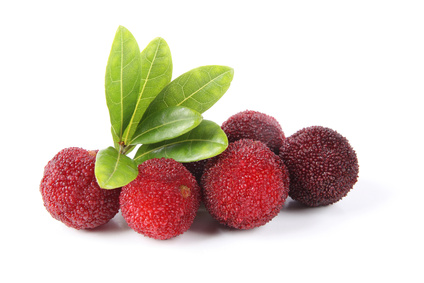Bayberry
- Bayberry grows as a large evergreen shrub or small tree that is widely distributed throughout the southern and eastern US. It is known for its small bluish-white berries.
- The bayberry is best known for its berries, from which a wax is derived to make fragrant bayberry candles.
Contents
Uses
- The dried root bark often is used medicinally.
- In folk medicine, bayberry has been used internally as a tea for its tonic and stimulant properties, and in the treatment of diarrhea.
- The plant is astringent, which may account for its use in diarrhea, as well as its topical use for wound healing.
- Bayberry also has been prepared as a gargle for treatment of sore throats.
Cautions
- Bayberry is considered POSSIBLY UNSAFE when taken by mouth. Bayberry can cause nausea, vomiting, and liver damage. It also contains a cancer-causing chemical.
- There isn’t enough information to know whether it is safe to apply bayberry to the skin or use as a gargle or douche.
- Bayberry may NOT be safe for anyone, but it is especially risky for people with the following conditions:
- Pregnancy and breast-feeding: Bayberry is considered POSSIBLY UNSAFE to take by mouth or apply to the skin if you are pregnant or breast-feeding because it contains a chemical that can cause cancer. Bayberry can cause nausea, vomiting, and liver damage.
- High blood pressure: Bayberry contains large amounts of chemicals called tannins. Tannins can increase the amount of sodium that the body retains. This can cause extra fluids to build up, and that can raise blood pressure. It’s especially important to avoid bayberry if you have high blood pressure.
- Water retention (edema): Bayberry might make edema worse. It’s especially important to avoid bayberry if you tend to retain water.
Other Names
Árbol de Cera, Arbre à Cire, Candleberry, Cirier de Pennsylvanie, Morella caroliniensis, Morella cerifera, Morella pensylvanica, Myrica, Myrica caroliniensis, Myrica cerifera, Myrica heterophylla, Myrica pensylvanica, Myrica pumila, Myrique de Pennsylvanie, Southern Bayberry, Southern Wax Myrtle, Tallow Shrub, Vegetable Tallow, Wax Myrtle, Waxberry.
References
Source:WEBMD, http://www.webmd.com/vitamins-supplements/ingredientmono-162-bayberry.aspx?activeingredientid=162&

